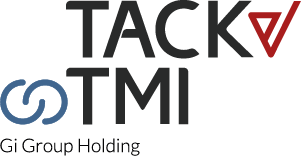Scaling Learning and Development for UK Sales Teams: Best Practices for Consistency and Impact
Delivering sales training at scale is one thing – but achieving consistency, cultural relevance, and measurable results across regions is another challenge entirely. Many organisations struggle with how to provide every sales team the same foundational experience while still adapting to local requirements. Drawing on our work with Henkel, this guide outlines practical strategies to help UK teams implement effective and consistent sales development.
1. Start with a clear understanding of regional priorities
The first step is to gain insight into the unique needs of each region. Collaborating closely with regional managers and maintaining ongoing communication helps identify the skills that matter most and ensures training is tailored appropriately. Building strong relationships with leaders at both global and regional levels provides clarity on priorities and enables learning initiatives to be relevant, effective, and impactful.
2. Secure L&D budgets to protect long-term growth
Learning and development budgets are often the first to be adjusted if money is left unspent. A reactive approach can undermine the importance of skill-building and even put future budgets at risk.
Henkel tackled this by embedding sales development into their annual planning from the outset. Each business unit committed to a fixed number of development seats, guaranteeing access for team members and allowing accurate scheduling and planning. This strategy not only reinforced the company’s commitment to L&D but also helped maintain consistent standards and future-proof skills across markets.
3. Simplify the nomination process
A smooth nomination process ensures the right people access the right training. Regional managers should be fully briefed on available options so they can discuss opportunities with their teams and nominate suitable candidates. Senior manager approval adds an extra layer of oversight, reinforcing the importance of professional development and reducing drop-outs.
4. Overcome language and accessibility barriers
Global programmes must be accessible to all participants. Without sufficient translations, teams may struggle to engage fully. While translation costs were historically high, AI-assisted solutions now allow content to be translated efficiently, even for smaller cohorts. Human review remains crucial, however, to guarantee accuracy and cultural appropriateness.
5. Embed cultural relevance in learning programmes
Cultural adaptation goes beyond language. Engaging regional managers during programme design ensures content resonates locally. Small details, such as breaks or travel routines, can affect engagement. While full customisation isn’t necessary, awareness of local context improves the effectiveness of global L&D initiatives.
6. Integrate external trainers as true collaborators
External trainers bring valuable insights, but their impact is maximised when fully aligned with organisational goals. Immersion sessions, access to business context, and integration into internal systems help trainers deliver relevant, consistent, and effective learning. Henkel, for example, invited external trainers to headquarters for orientation sessions, equipping them with the company’s mission and values while preserving local relevance.
7. Balance global standards with local flexibility
Local teams may request adjustments to global programmes. Most differences can be accommodated through facilitation rather than costly redesign. Limiting adaptations to around 10% of the programme ensures consistency while allowing minor cultural tweaks. Providing a clear framework for essential content and acceptable variations helps trainers stay aligned with organisational goals.
8. Monitor and review regularly
A structured process for reviewing content ensures quality and consistency across regions. Collecting feedback and hosting annual or biannual review sessions allows for ongoing improvements and sharing of best practices, keeping learning programmes effective and relevant.
9. Leverage training tools and sales technology
Trainers should be proficient with the business’s tools, including CRM systems and AI applications, to integrate them seamlessly into learning sessions. Henkel enhanced engagement by providing trainers with Sandbox access, allowing hands-on demonstrations of CRM functionalities.
10. Plan for scalable demand
A common challenge is building a capable faculty before training demand is confirmed. Engaging potential trainers early, even without guaranteed sessions, builds trust, secures availability, and ensures readiness for future needs.
11. Use incentives to drive engagement
Motivation is key to participation. Henkel introduced a points-based ‘belt system’ where learners progressed from white to black belt by completing activities. Collaborating with professional bodies, such as the Institute of Sales Professionals, reinforced credibility and enhanced engagement.
12. Virtual and in-person learning optionsWhile virtual learning has its place, in-person sessions remain preferred for commercial and sales programmes due to stronger focus, practice opportunities, and networking. Offering flexibility through self-paced, blended, or in-person formats empowers employees to choose what works best, boosting engagement.
Deliver scalable, inclusive sales development
Successfully scaling sales development in the UK requires balancing consistency with local relevance. By understanding regional needs, safeguarding budgets, supporting trainers, and leveraging technology, organisations can deliver impactful learning at scale. Flexibility, collaboration, and embedding learning into business strategy ensure sales teams are prepared, confident, and ready to perform.
Unlocking the potential of scalable, inclusive sales development in the UK
Scaling sales development in the UK requires a careful balance between maintaining consistent standards and addressing local needs. By understanding regional priorities, safeguarding L&D budgets, supporting and empowering trainers, and leveraging technology effectively, organisations can deliver impactful, culturally aware learning at scale. The key lies in staying adaptable, fostering collaboration across teams, and embedding learning into overall business strategy, ensuring UK sales teams are fully equipped, motivated, and ready to achieve exceptional results.
Ready to elevate your sales team’s learning? Contact us today to get started
